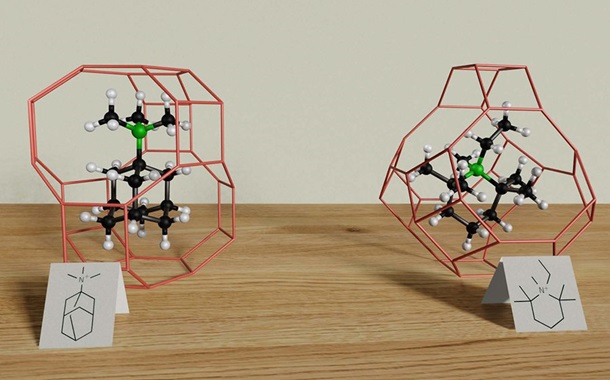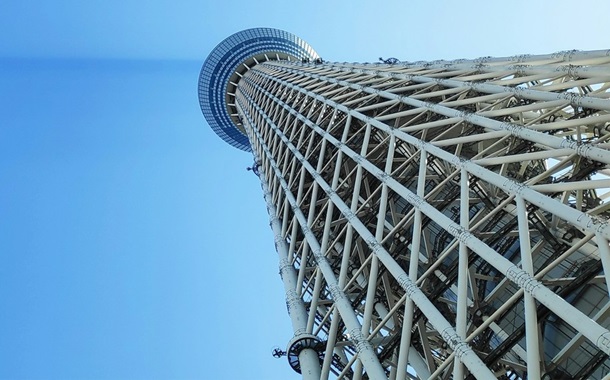Analysis of the Management Positions Gender Structure in Sports Organizations in Slovakia
Downloads
Doi:10.28991/HIJ-2022-03-04-04
Full Text:PDF
Downloads
Chambers, D., Steiner, L., & Fleming, C. (2020). Gendered newsroom cultures and values. Women and Journalism, 113–134, Routledge, Abingdon, United Kingdom. doi:10.4324/9780203500668-11.
Schoch, L. (2022). The Gender of Sports News: Horizontal Segregation and Marginalization of Female Journalists in the Swiss Press. Communication and Sport, 10(4), 746–766. doi:10.1177/2167479520951162.
Coakley, J. J. & Pike, E. (2014). Sports in society: issues and controversies (2nd Ed.). McGraw-Hill Education, London, United Kindom.
Cunningham, G. B., & Sagas, M. (2008). Gender and sex diversity in sport organizations: Introduction to a special issue. Sex Roles, 58(1–2), 3–9. doi:10.1007/s11199-007-9360-8.
Burton, L. J. (2019). Under-representation of women in leadership roles in women's sport. Routledge Handbook of the Business of Women's Sport, 255–268, Routledge, Abingdon, United Kingdom. doi:10.4324/9780203702635-20.
Everbach, T. (2018). "I Realized It Was About Them ... Not Me”: Women Sports Journalists and Harassment. Mediating Misogyny. Palgrave Macmillan, Cham, Switzerland. doi:10.1007/978-3-319-72917-6_7.
Grubb, M. V., & Billiot, T. (2010). Women sportscasters: Navigating a masculine domain. Journal of Gender Studies, 19(1), 87–93. doi:10.1080/09589230903525460.
Hardin, M., & Shain, S. (2006). "Feeling much smaller than you know you are”: The fragmented professional identity of female sports journalists. Critical Studies in Media Communication, 23(4), 322–338. doi:10.1080/07393180600933147.
Hardin, M., & Whiteside, E. (2009). Token responses to gendered newsrooms: Factors in the career-related decisions of female newspaper sports journalists. Journalism, 10(5), 627–646. doi:10.1177/14648849090100050501.
Miller, P., & Miller, R. (1995). The Invisible Woman: Female Sports Journalists in the Workplace. Journalism & Mass Communication Quarterly, 72(4), 883–889. doi:10.1177/107769909507200411.
Lucie, S., & Fabien, O. (2021). "How Can They Like Doing That?” The Ambivalent Definition of Legitimate Work in Sports Journalism. Journalism Studies, 22(3), 263–281. doi:10.1080/1461670X.2020.1861474.
Burton, L. J., Barr, C. A., Fink, J. S., & Bruening, J. E. (2009). Think athletic director, think masculine?: Examination of the gender typing of managerial subroles within athletic administration positions. Sex Roles, 61(5–6), 416–426. doi:10.1007/s11199-009-9632-6.
Bryan, A., Pope, S., & Rankin-Wright, A. J. (2021). On the Periphery: Examining Women's Exclusion From Core Leadership Roles in the "Extremely Gendered” Organization of Men's Club Football in England. Gender and Society, 35(6), 940–970. doi:10.1177/08912432211046318.
Hanson, V. (2012). The inequality of sport: Women< men. The Review: A journal of undergraduate student research, 13(1), 15-22.
Moawad, J. (2019). Gender inequality in sports. FairPlay, Revista de Filosofia, í‰tica y Derecho del Deporte, (13), 28-53.
Valiente, C. (2022). The impact of gender quotas in sport management: the case of Spain. Sport in Society, 25(5), 1017–1034. doi:10.1080/17430437.2020.1819244.
Hindman, L. C., & Paulsen, R. J. (2022). Racial and gender inequality regimes in sport: occupational segregation and wage gaps in the U.S. spectator sports industry. European Sport Management Quarterly, 1–21. doi:10.1080/16184742.2022.2128846.
Grundy, F. (1996). Gender and Computers. Intelligent Tutoring Media, 7(1), 21–29. doi:10.1080/14626269609408365.
Wajcman, J. (2009). Feminist theories of technology. Cambridge Journal of Economics, 34(1), 143–152. doi:10.1093/cje/ben057.
Fox, M.F., Johnson, D.G., Rosser, S.V. & Rosser, S.V. (2006). Women, gender and technology. University of Illinois Press, Champaign, United States.
Kristová, M. (2008). Women in ICT professions and the ICT field in the Czech Republic. PhD Thesis, Charles University, Prague, Czech Republic. (In Czech).
Scott-Dixon, K. (2006). Trans/forming feminisms: Trans/feminist voices speak out. Canadian Scholars' Press, Toronto, Canada.
Adriaanse, J. A. (2018). Europe in world perspective: The Sydney Scoreboard Global Index for women in sport leadership. In Gender diversity in European sport governance. Routledge, 11-19.
Eurostat. (2019). Employment rate by sex, age group 20-64. European Commission, Brussels, Belgium. Available online: http://ec.europa.eu/eurostat/tgm/refreshTableAction.do?tab=table&plugin=1&pcode=t2020_10&language=en (accessed on January 2023).
KŠ™ížková, A. (2005). What is the position of Czech women in management positions? L. Sokačová. Women in Management Positions, Praha: Gender Studies, 11-19.
Pfister, G. (2010). Women in sport-gender relations and future perspectives. Sport in Society, 13(2), 234–248. doi:10.1080/17430430903522954.
Pfister, G., & Radtke, S. (2009). Sport, women, and leadership: Results of a project on executives in German sports organizations. European Journal of Sport Science, 9(4), 229–243. doi:10.1080/17461390902818286.
Claringbould, I., & Knoppers, A. (2008). Doing and undoing gender in sport governance. Sex Roles, 58(1–2), 81–92. doi:10.1007/s11199-007-9351-9.
Acker, J., Barry, K., & Esseveld, J. (1983). Objectivity and truth: Problems in doing feminist research. Women's Studies International Forum, 6(4), 423–435. doi:10.1016/0277-5395(83)90035-3.
Sotiriadou, P., & de Haan, D. (2019). Women and leadership: advancing gender equity policies in sport leadership through sport governance. International Journal of Sport Policy and Politics, 11(3), 365–383. doi:10.1080/19406940.2019.1577902.
Messner, M. A. (2016). Sports and Male Domination: The Female Athlete as Contested Ideological Terrain. Sociology of Sport Journal, 5(3), 197–211. doi:10.1123/ssj.5.3.197.
Hall, M. A. (2016). The Discourse of Gender and Sport: From Femininity to Feminism. Sociology of Sport Journal, 5(4), 330–340. doi:10.1123/ssj.5.4.330.
Valenti, M., Scelles, N., & Morrow, S. (2020). Elite sport policies and international sporting success: a panel data analysis of European women's national football team performance. European Sport Management Quarterly, 20(3), 300–320. doi:10.1080/16184742.2019.1606264.
Nunes, R. A. (2019). Women athletes in the Olympic Games. Journal of Human Sport and Exercise, 14(3), 674–683. doi:10.14198/JHSE.2019.143.17.
Council of the European Union (2014). Council conclusions of 21 May 2014 on gender equality in sport. Publications Office of the European Union. Available online: http://publications.europa.eu/resource/cellar/8a657ced-f38a-11e3-831f-01aa75ed71a1.0002.03/DOC_1 (accessed on January 2023). (In Czech).
Ceplová, M. (2021). Rules supporting equal representation of women and men on candidate lists - a comparative view. Master Thesis, Masaryk University, Brno, Czech Republic. (In Czech).
Adriaanse, J. (2015). Gender Diversity in the Governance of Sport Associations: The Sydney Scoreboard Global Index of Participation. Journal of Business Ethics, 137(1), 149–160. doi:10.1007/s10551-015-2550-3.
Seznam Zprávy. (2021). Women talk too much at meetings, complained the head of the Japanese Olympic Committee. Available online: https://www.seznamzpravy.cz/clanek/zeny-na-schuzich-moc-mluvi-stezoval-si-sef-japonskeho-olympijskeho-vyboru-140832 (accessed on January 2023). (In Czech).
Dovalil, J. (2004). Olympismus. Olympia, Praha, Czech Republic. (In Czech).
Fasting, K., & Knorre, N. (2005). Women in sports in the Czech Republic. Oslo a Praha, Czech Republic.
Knoppers, A., & Anthonissen, A. (2008). Gendered managerial discourses in sport organizations: Multiplicity and complexity. Sex Roles, 58(1–2), 93–103. doi:10.1007/s11199-007-9324-z.
Claringbould, I., & Knoppers, A. (2013). Understanding the lack of gender equity in leadership positions in (sport) organization. Managing Social Issue. Edward Elgar Publishing, Northampton, United Kingdom. doi:10.4337/9781781006962.00018.
Kanter, R.M. (1977). Some Effects of Proportions on Group Life. The Gender Gap in Psychotherapy. Springer, Boston, United States. doi:10.1007/978-1-4684-4754-5_5.
Ottesen, L., Skirstad, B., Pfister, G., & Habermann, U. (2010). Gender relations in scandinavian sport organizations - a comparison of the situation and the policies in Denmark, Norway and Sweden. Sport in Society, 13(4), 657–675. doi:10.1080/17430431003616423.
Fink, J. S. (2008). Gender and sex diversity in sport organizations: Concluding comments. Sex Roles, 58(1–2), 146–147. doi:10.1007/s11199-007-9364-4.
Hoeber, L. (2007). Exploring the gaps between meanings and practices of gender equity in a sport organization. Gender, Work and Organization, 14(3), 259–280. doi:10.1111/j.1468-0432.2007.00342.x.
Vidal-Vilaplana, A., Gregori-Faus, C., Parra-Camacho, D., & González-Serrano, M. H. (2023). Analysis of sport management subjects in university Sports Sciences degrees in Spain. The International Journal of Management Education, 21(2), 100771. doi:10.1016/j.ijme.2023.100771.
Apollo, M., Mostowska, J., Legut, A., Maciuk, K., & Timothy, D. J. (2023). Gender differences in competitive adventure sports tourism. Journal of Outdoor Recreation and Tourism, 42, 100604. doi:10.1016/j.jort.2022.100604.
Korábová, T. (2021). Sports management and women in leadership positions. Prague, 2021. Bachelor Thesis, Charles University, Prague, Czech Republic. (In Czech).
Scharfenkamp, K., Wicker, P., & Frick, B. (2023). Female representation at the national level and women sport volunteering in European countries. Nonprofit Management and Leadership. doi:10.1002/nml.21550.
Willinger, M., Dubois, D., & Bravaccini, S. (2023). Participation in Competitive Sports Closes Gender Gaps in Competition and in Risk Taking. Journal of Sports Economics, 24(1), 97–133. doi:10.1177/15270025221108189.
Ispa-Landa, S. (2017). Racial and gender inequality and school discipline: Toward a more comprehensive view of school policy. Social Currents, 4(6), 511-517. doi:10.1177/2329496517704876.
Mareš, P., Rabušic, L., & Soukup, P. (2015). Analysis of social science data (not only) in SPSS. Masaryk University, Brno, Czech Republic. (In Czech).
Guo, T., Yu, K., Aloqaily, M., & Wan, S. (2022). Constructing a prior-dependent graph for data clustering and dimension reduction in the edge of AIoT. Future Generation Computer Systems, 128, 381–394. doi:10.1016/j.future.2021.09.044.
Dalmaijer, E. S., Nord, C. L., & Astle, D. E. (2022). Statistical power for cluster analysis. BMC Bioinformatics, 23(1), 1–28. doi:10.1186/s12859-022-04675-1.
Bem, S. L. (2003). The lenses of gender: Transforming the debate on sexual inequality. Yale University Press, New Haven, United States.
Wheaton, B., & Thorpe, H. (2018). Action Sports, the Olympic Games, and the Opportunities and Challenges for Gender Equity: The Cases of Surfing and Skateboarding. Journal of Sport and Social Issues, 42(5), 315–342. doi:10.1177/0193723518781230.
- This work (including HTML and PDF Files) is licensed under a Creative Commons Attribution 4.0 International License.






















